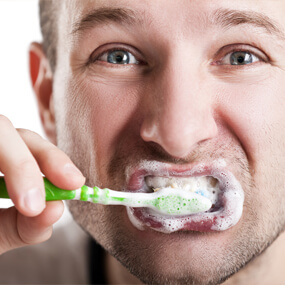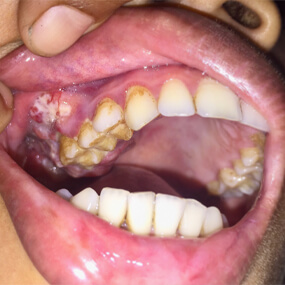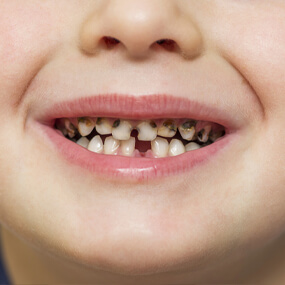How Your Mental Well-Being Affects Your Oral Health

If you are experiencing depression or another mental health issue, then there is a real possibility that your predicament is reflected in your oral health as well. Recent clinical research has demonstrated a connection between reduced oral health and mental health issues like depression and anxiety, and the National Health and Nutrition Examination Survey revealed that more than 65 percent of people with diagnosed depression had a toothache within the previous year. People with depression tend to rate their oral health at fair or below, and a scientific review of multiple clinical studies demonstrated a link between gum disease and mental health issues like stress, distress, and even loneliness.
Researchers are working to identify the causal relationships, if any. Stress, anxiety, depression, and so forth clearly have an effect on behavior, and people dealing with these issues are more prone to inconsistencies in their oral hygiene. This can cause serious oral health issues. Consider that people with depression will often self-medicate with alcohol and cigarettes, put off regular dental visits and often not brush and floss as often as the American Dental Association recommends.
However, the problems are not exclusively behavioral in nature. Many mental health issues can exact a physical toll on the body. Stress, for instance, promotes the creation of the hormone cortisol, and increased cortisol levels are known to weaken the immune system. A person dealing with unmanaged stress can be prone to gum disease. In addition, many medications prescribed for depression and anxiety cause xerostomia—dry mouth—and that inadequate saliva production means that there are more food particles, bacteria, and acids in the mouth and thus increased opportunity for tooth decay.
Anxiety is particularly problematic when it comes to your oral health. People with anxieties are not only more prone to xerostomia but more susceptible to canker sores and more inclined to nocturnal bruxism, which is a condition in which you grind your teeth and clench your jaw while asleep. Such issues can also be exacerbated by prescribed medications, self-medication, and poor oral hygiene.
For people dealing with anxiety, depression, and other mental health issues, poor oral health is not an inevitability. Good oral health begins with a solid foundation: nurture the habits of brushing and flossing twice a day and visiting your dentist every six months. Also, you can discuss your mental health issues with your dentist as well as the medications you are prescribed, and your dentist can then personalize your in-office and at-home oral care in order to compensate for those factors.
Strive for a Mind-Body Balance
Stress and other mental health issues can have a very real effect on your oral health as well as your systemic well-being. At Scottsdale Cosmetic Dentistry Excellence, Jeffrey D. Clark, DDS, and his team appreciate this connection. As a top-rated holistic dentist near you, we take pride in delivering a personalized and biocompatible approach to dental care from Dr. Clark. Call us today at 480 585 1853 with any questions and to schedule your appointment.




